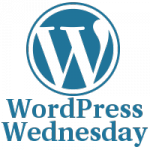As I begin writing this, Jane Wells is delivering her keynote at WordCamp Atlanta, speaking about the upcoming changes in WordPress 3.0. On the one hand, WordPress releases are ‘serial’, so an 3.0 release doesn’t necessarily have any bigger changes than when we move from 2.8 to 2.9. It’s just the next step after the 2.9 release. But, that said, there are big changes coming. One of the biggest is going to be the merge of the single-site version of the code and the WordPress-MU code, which will now be referred to as “multi-site” capability. Other new bits will include the “Core Plugins”, which will be a set of plugins cultivated and updated along with the main core code, changes to menu management, more support for custom post types, and a new default theme, dubbed ‘2010’. There will probably be a handful of other smaller changes, but not included at this time is the revamp of the Media Manager, which will probably wait until version 3.1.
With this release, the core team is trying to set a more structured, focused standard for how to get everything done. At the last developer chat, the scope of development was set to those features mentioned above. Setting a strict feature scope this early in the kickoff of a new release is a new thing, and I think it will turn out to be a good thing.
I’ve been wanting for a while to get back into more involvement with WordPress development, so I’ve volunteered (along with several others) to help out with the “Healthcheck” Core Plugin. This plugin will examine the configuration of your server and alert you to anything that might prevent certain features from working correctly, or that might cause problems in the future (such as old versions of PHP or MySQL).
In other news, there are going to be some updates to the wordpress.org website, including improvement to the Ideas forum, and some BuddyPress functionality, including user profiles for all regiestered users. WordCamp.org will also get some BuddyPress love and see new features.
As usual, the future holds some very exciting changes. But I’m particularly happy to see that there is not only progress happening in how the code is handled, but in how the community is shepherded. I think just about everyone would agree that WordPress would not be where it is today without its great user and developer community. So, if you have ever contributed a patch, reported a bug, suggested a new feature, or even just thanked somebody who has — you’re a part of the community. Thanks!

